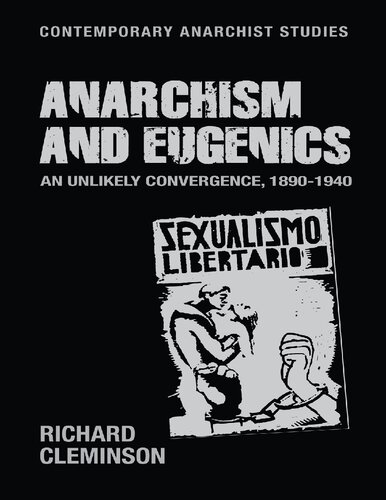

Most ebook files are in PDF format, so you can easily read them using various software such as Foxit Reader or directly on the Google Chrome browser.
Some ebook files are released by publishers in other formats such as .awz, .mobi, .epub, .fb2, etc. You may need to install specific software to read these formats on mobile/PC, such as Calibre.
Please read the tutorial at this link: https://ebookbell.com/faq
We offer FREE conversion to the popular formats you request; however, this may take some time. Therefore, right after payment, please email us, and we will try to provide the service as quickly as possible.
For some exceptional file formats or broken links (if any), please refrain from opening any disputes. Instead, email us first, and we will try to assist within a maximum of 6 hours.
EbookBell Team

4.1
90 reviewsRichard Cleminson offers a detailed analysis of the historical convergence between anarchism and eugenics in five countries: Argentina, England, France, Portugal and Spain.
The book highlights the seemingly contradictory nature of eugenicist ideas that found a home in an anarchist environment. How does a highly hierarchical doctrine, which seeks to ensure 'race' survival by eliminating dysgenics whilst protecting a select group, become reconciled with a political and social movement that ostensibly believes in the destruction of the state and the removal of all hierarchies? From this perspective, anarchism and eugenics appear to be incommensurable and mutually exclusive.
Despite this apparent paradox, Cleminson identifies multiple overlaps and compatibilities in word and in deed between the two. Some of these appear to be 'logical' in respect of anarchist understandings; the necessity of combatting disease and degeneration as a step towards revolution and as a means of undermining the very basis of capitalism and the state becomes comprehensible. Other overlaps, however, are more problematic and uncomfortable. What concepts of the optimum body did anarchists adopt and why? How far did anarchists go in accepting authoritarian eugenic measures? How did they try to differentiate their expression of eugenics from state forms?
Anarchism and eugenics makes an original contribution to reconsiderations of anarchist ideas in terms of their acceptance of scientific rationales and their participation in 'biopolitics' and the dynamics of governmentality. Furthermore, it seeks to expand historical understandings of eugenics as an equally worldwide phenomenon.